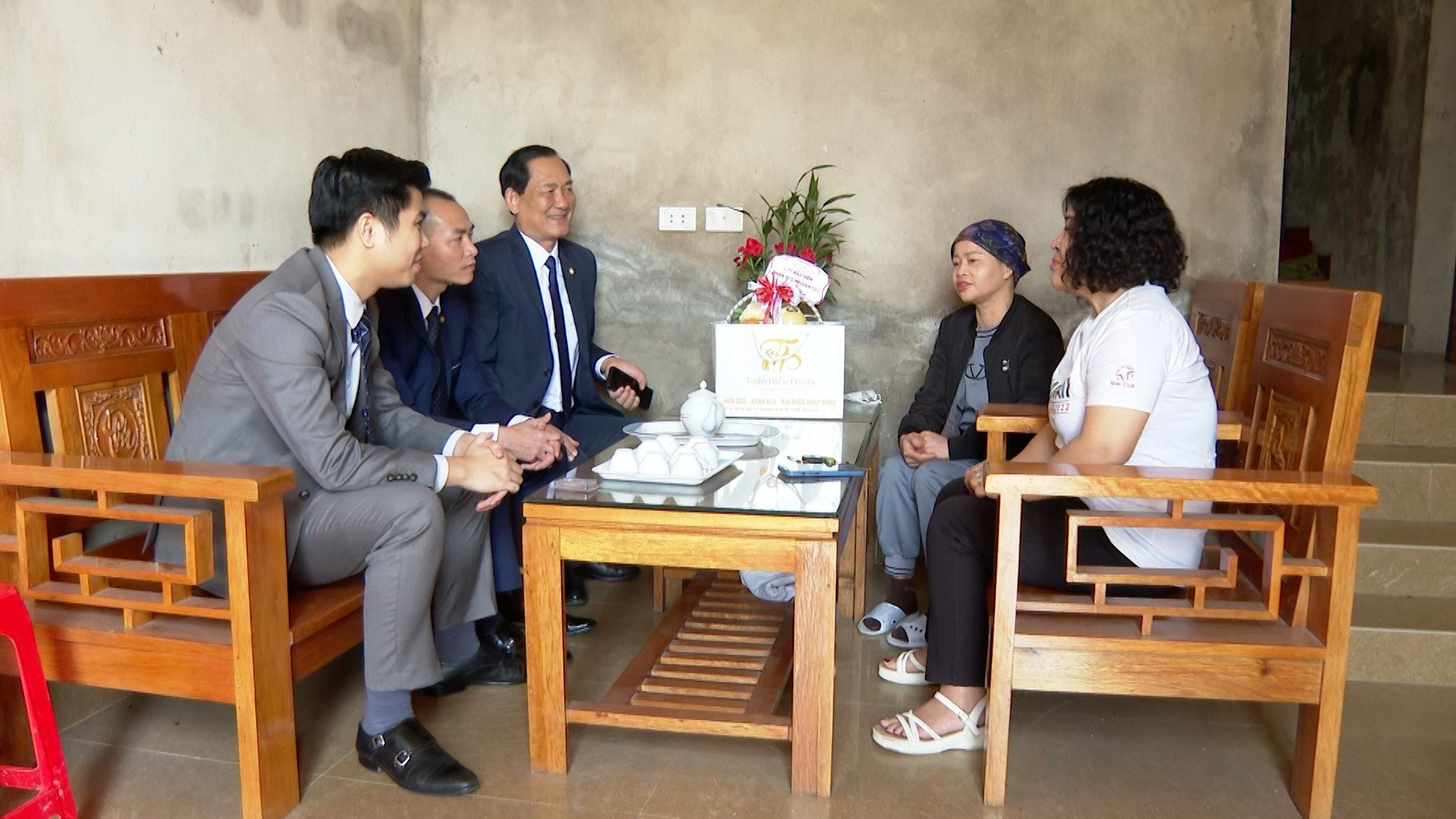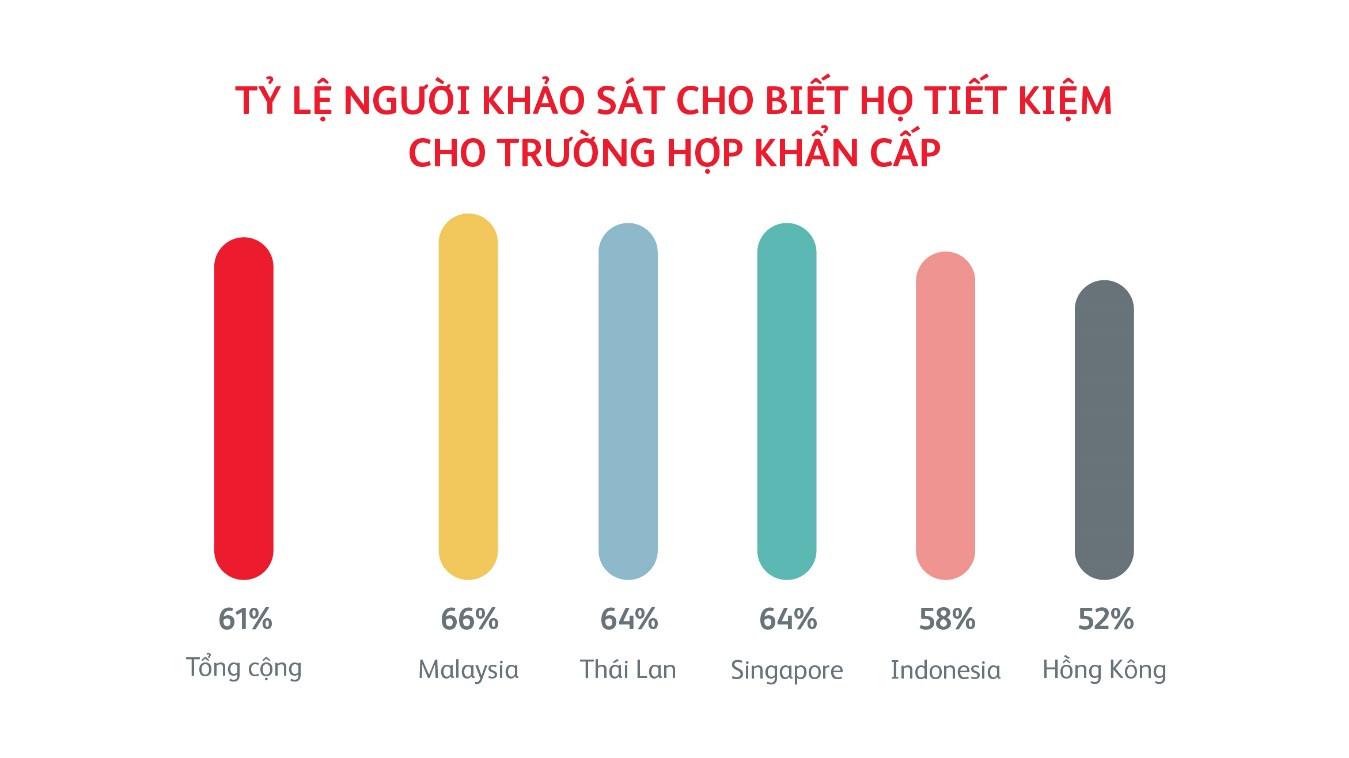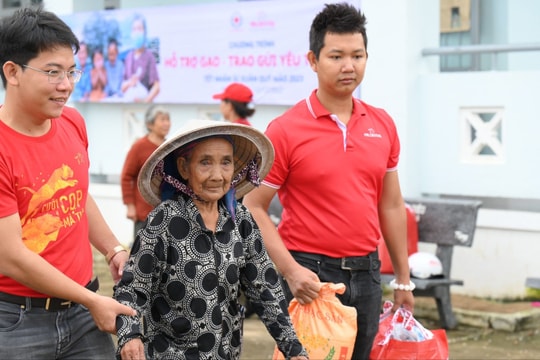Why are Vietnamese people increasingly interested in financial planning?
(Baonghean.vn) - In the context of rapidly increasing insurance benefit payments, another notable trend is that more and more Vietnamese people are interested in and looking for financial backup plans for themselves and their families; in which insurance is an effective product for family pillars.
Insurance is for "When needed, it is there"
The pressure on the shoulders of Nguyen Minh Hien (39 years old, living in Cam Pha, Quang Ninh) and her husband is not small when the family has three generations living together, including two young children and the husband's parents. Selling seafood for many years at the market has brought relatively stable economic conditions, but everything turned upside down when Ms. Hien discovered breast cancer in recent months.
“Since I discovered it, I had to quit my job to get treatment, but fortunately I received a total insurance payout of VND1,085 billion,” said Ms. Hien. The benefit payout from Prudential, including more than VND635 million in cash and about VND450 million in hospital fee support, has helped Ms. Hien’s family focus on treatment.

Insurance is not only a “savings” but also a reserve fund that plays the best role when illness or accident “knocks on the door” unexpectedly. This is even more meaningful for families with limited economic conditions, such as the case of Ms. Pham Thi Mau (50 years old, in Tien Yen, Quang Ninh).
Ms. Mau is currently taking chemotherapy to treat her cancer. Ms. Dinh Thi Huong, the consultant accompanying the client, said that Ms. Mau's family situation is very difficult, the client was orphaned at a young age. After divorcing her husband, the client brought her child to live with her aunt's family and help with the business.
When she was diagnosed, she received a cash benefit of 350 million VND and a fee waiver from Prudential. “When I found out I was sick, I was very confused, but the treatment costs were covered so I felt secure in getting treatment,” Ms. Mau shared.
The amount of insurance benefits paid has helped many families overcome their immediate financial difficulties and have peace of mind when it comes to medical treatment. Especially when the insured person is the breadwinner and plays an important role in the family.

The vast majority of actual insurance benefit payments are to this group. For example, Prudential's 2022 statistics show that about 80% of customers receiving benefits are under the retirement age group.
This is a group of people in their prime, with the responsibility of earning money and taking care of their families. In addition to saving for retirement, insurance is to protect their income in case of illness or accident. The financial support has also helped their relatives quickly stabilize their lives and continue with future plans.
In fact, medical expenses are a significant burden for Vietnamese people. Information from the leaders of Vietnam Social Security in July said that Vietnamese people are having to pay 40% of medical examination and treatment costs themselves, double the number recommended by the WHO, higher than the average level of countries in the region.
Currently, the state health insurance covers 80%, the patient pays 20%. But that is an ideal number, because medical treatment is very broad and many items are not covered by this payment list.
Therefore, supplementary health insurance products, or life insurance, are providing additional coverage to compulsory health insurance, providing many other, better services and benefits for patients.
To protect the family's breadwinner, it is necessary to proactively plan finances early.
In the above cases, what they have in common is not only being the breadwinner of the family, but also proactively choosing insurance as a backup solution.
Like Ms. Mau, she has up to 3 insurance contracts, even though her circumstances are not really well off. In 2019, Ms. Mau started participating in insurance. When life became less difficult, she participated in another insurance contract. Later, when her daughter grew up and got married, she also bought more health care products for her mother.
Serious illness or unexpected accidents are things no one wants, but if everyone knows how to be proactive about finances such as saving or buying insurance, when an incident occurs, the financial burden will be lighter and the mind will be more comfortable.
Research results from the “Igniting Aspirations” survey, conducted by Prudential in Hong Kong, Indonesia, Malaysia, Singapore and Thailand, show a growing trend of people being interested in contingency plans against unforeseen risks.
Accordingly, 64% of respondents are worried about how they will take care of their future if something unfortunate happens. Notably, 76% of survey participants in generation Y and 49% of generation Z said they have financial reserves for unexpected risks that may occur.

Modern life comes with many pressures that force each individual to calculate and balance their consumption, savings, protection and investment. Even for many young people, financial worries in the future force them to think about saving and preparing for the present./.



